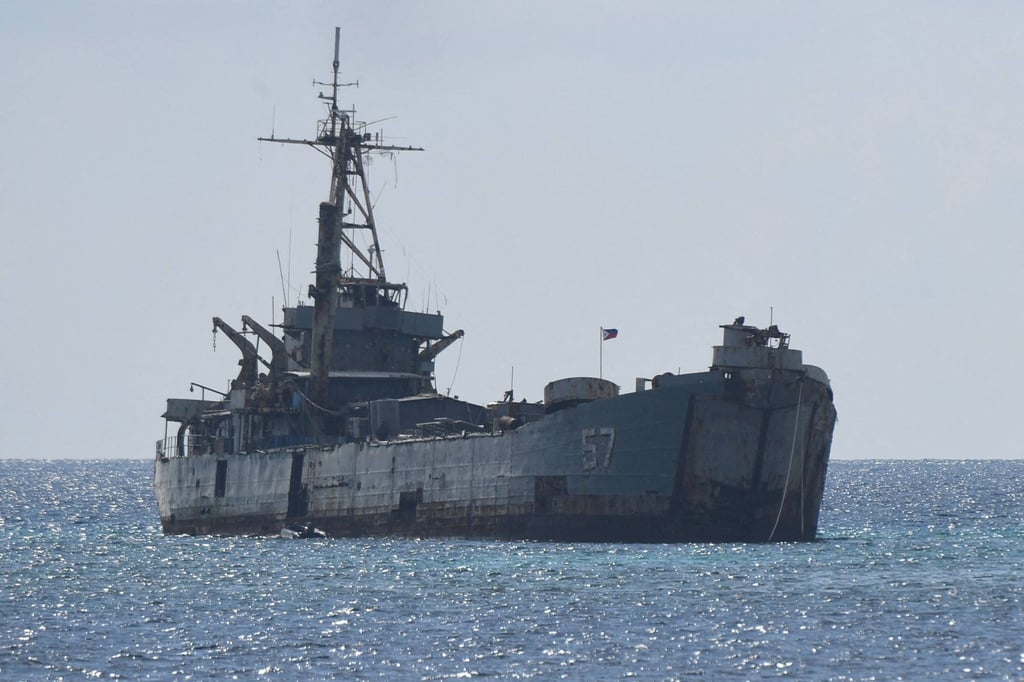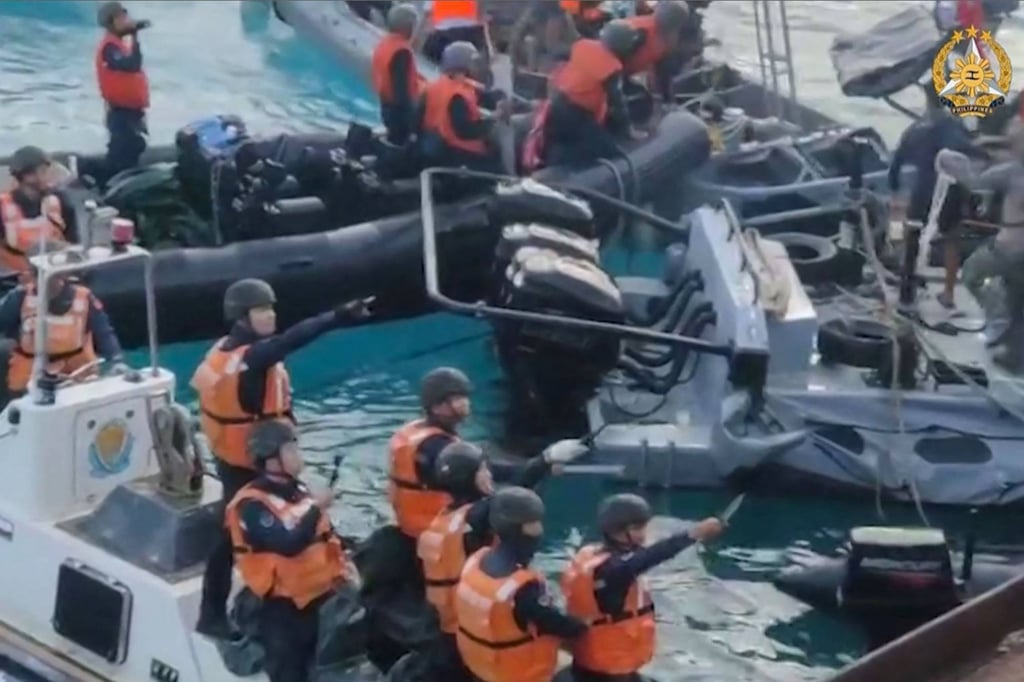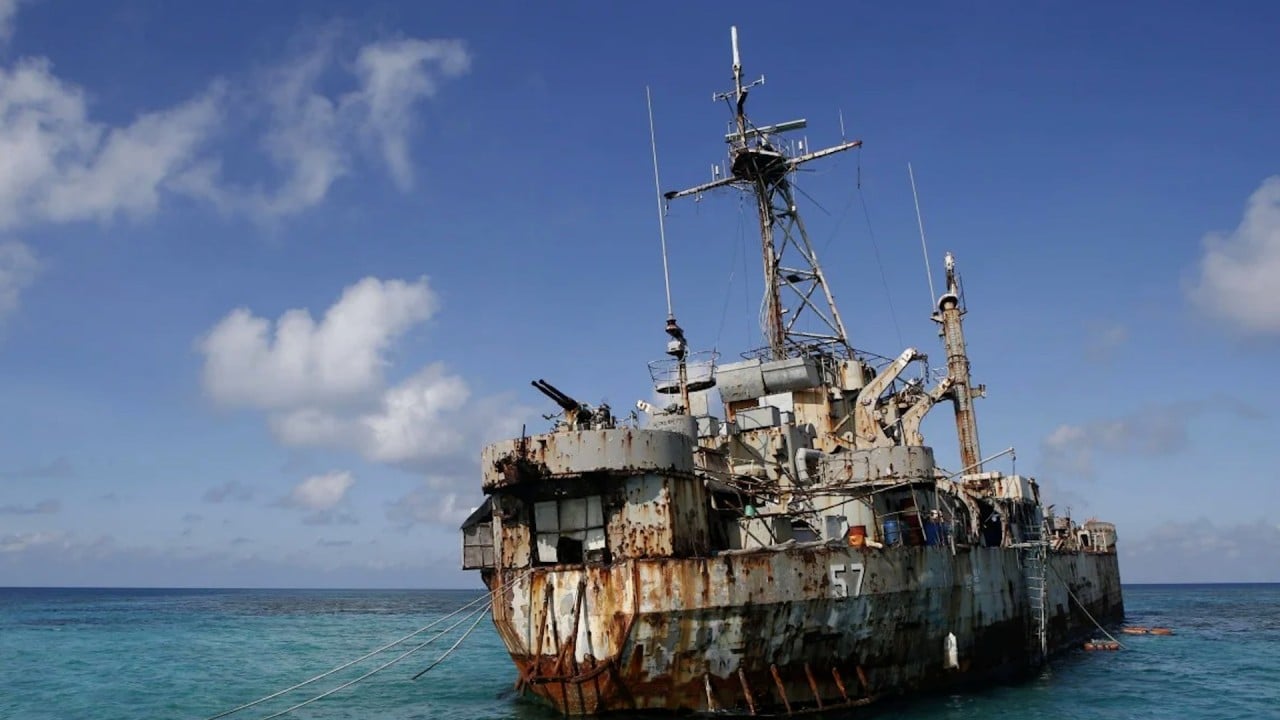South China Sea: Philippines’ hitch-free mission a sign of better days in disputed waters?
Gill said Saturday’s RORE (rotation and resupply mission) mission was a “positive sign”, but cautioned that the Chinese would “try to misconstrue this success” to “illustrate itself in a dominant position”.

Previously, Chinese coastguard vessels had attempted to disrupt numerous RORE missions to the Second Thomas Shoal, which Beijing also claims, based on accusations the Philippines was bringing building materials to reinforce the BRP Sierra Madre, violating an agreement that no new infrastructure be built on the contested territory.
After Manila’s statement regarding Saturday’s mission, Beijing’s foreign affairs ministry said that the “China Coast Guard let the [Philippine] vessel through” based on the provisional arrangement both countries had agreed on the week prior, “after being informed by the Philippines before its resupply for the warship grounded at China’s Ren’ai Jiao [Beijing’s term for the Second Thomas Shoal] and confirming on-the-scene that the vessel carried living supplies only”.
However, Philippine officials refuted Beijing’s version of events, saying that no such inspection took place.
“Instead of acknowledging how two countries were able to manage differences in order to avoid miscalculation and misunderstanding, [China’s foreign affairs] spokesperson chose to misrepresent what has been agreed between the Philippines and China regarding RORE missions in Ayungin Shoal,” foreign affairs secretary Enrique Manalo said in a statement, referring to the Second Thomas Shoal by its Filipino name.
“Let us make it absolutely clear: the understanding between the Philippines and China was concluded in good faith, with the explicit agreement that it will not prejudice national positions. It is not helpful to keep giving false notions about what has been agreed on and how they were implemented,” he added.
McGill advised Manila to remain on guard, saying: “While this agreement may have worked, I’ve always cautioned against being overly complacent when it comes to confidence-building measures with China because of its track record of being highly inconsistent in this regard.”
He added that observing Beijing’s pattern of behaviour for each RORE mission would help verify China’s commitment towards the agreement.
He also urged Manila to be vigilant about Beijing’s narratives, which could determine the success of future RORE missions.
“It’s still very early to say that this agreement will be a success, because China is definitely still trying to alter the narrative. It’s part of that disinformation that China continues to push to forward its interests.
“And this is something that I believe our Philippine Coast Guard and our Philippine military are very much steadfast in countering such disinformation along with pursuing their objectives at sea.”

Sherwin Ona, a visiting fellow at the Institute for National Defence and Security Research in Taiwan, said although the Chinese ministry of foreign affairs’ statement seemed to undermine the agreement that Manila and Beijing had reached, he believed the comments were “meant for China’s domestic audience”.
Ona said that if China was really sincere in de-escalating tensions, “it should refrain from issuing provocative statements and stay true to the spirit of the agreement”, adding that both Manila and Beijing should avoid providing statements that would undermine their positions as part of their confidence-building measures.
He also said Philippine officials needed to develop a stronger narrative to explain why a mutual agreement with China was beneficial for the country and why there was a need to sustain diplomatic conversations with China without compromising its maritime position.
“We are also optimistic, but we must always be vigilant and critically engage China … We need to express our strong resolve to preserve our rights and defend our sovereignty,” he said.
Ona added that Beijing and Manila could explore other confidence-building measures, such as framing the RORE agreement as a humanitarian mission, with Philippine vessels pursuing its resupply efforts through civilian measures using Philippine Coast Guard ships.
Meanwhile, Gill said it was essential to recognise that the agreement was “still raw”, and the Philippines would need to ensure that Beijing would hold its end of the bargain before exploring other potential agreements.
“Until then, the Philippines will continue to consolidate its efforts to secure its interests. Manila has signalled its willingness to de-escalate. The ball is now in Beijing’s court,” he said.
Gill added that the Philippines showed “it was the bigger country” by pursuing negotiations with China.
“This was always consistent with Philippine foreign policy towards China – that yes, we will be more than ready to stand up to your belligerent activities at sea, but at the same time we will ensure that we would also exhaust all measures to de-escalate and to negotiate more diplomatically,” he said.
Ona said he remained “optimistic” about future resupply missions, “but we must always be vigilant and critically engage China”.
